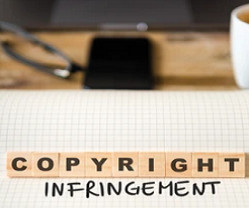The Choice Of Law Debate In Copyright Infringement
IP and Legal Filings
AUGUST 14, 2023
Since copyright is “universal”, some argue that the lex originis should be utilised to determine who owns works that have been plagiarised. Since copyright in whatever form (even first ownership) is subject to the territoriality principle, many argue that lex loci protectionis is the appropriate course of action. [10]












Let's personalize your content